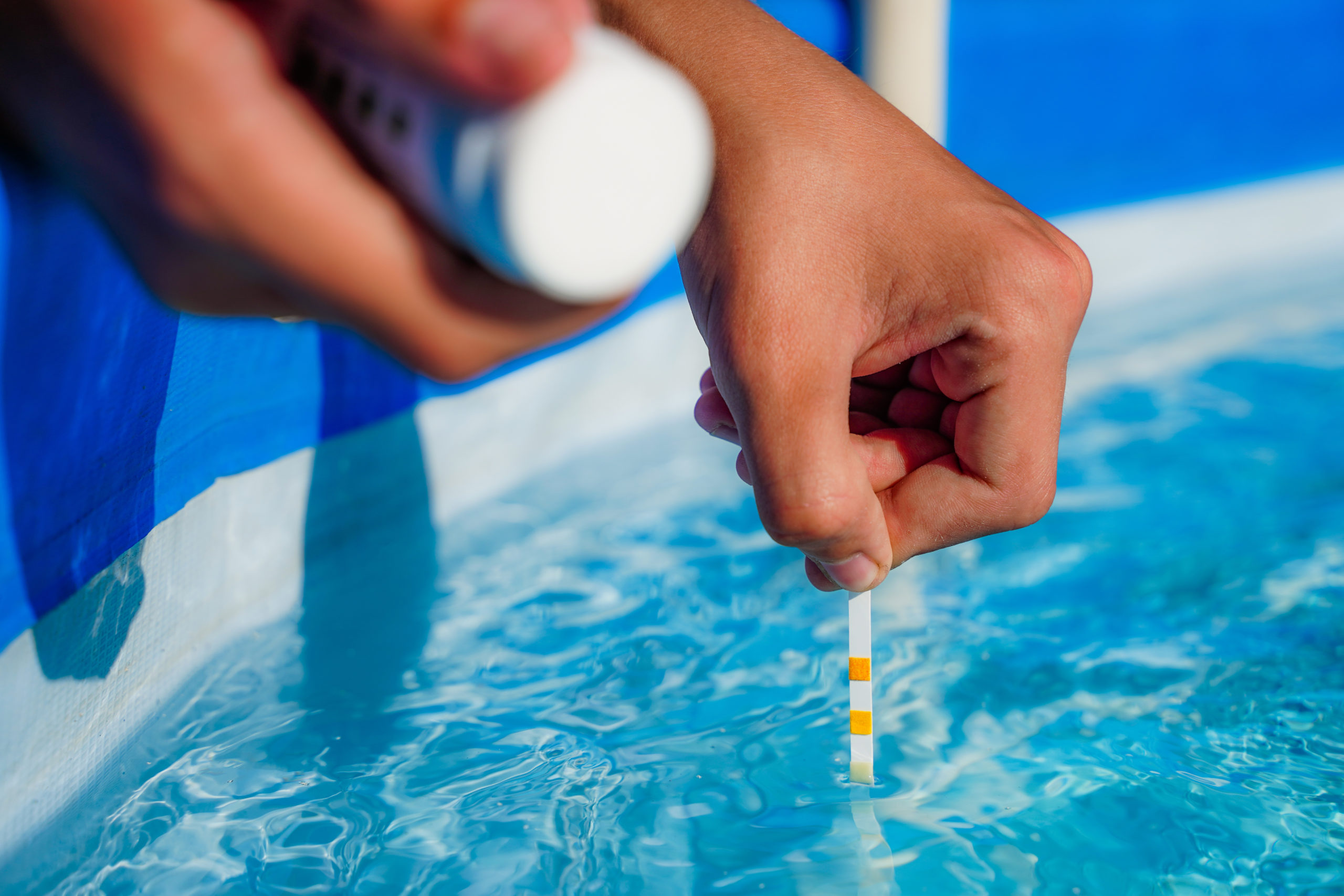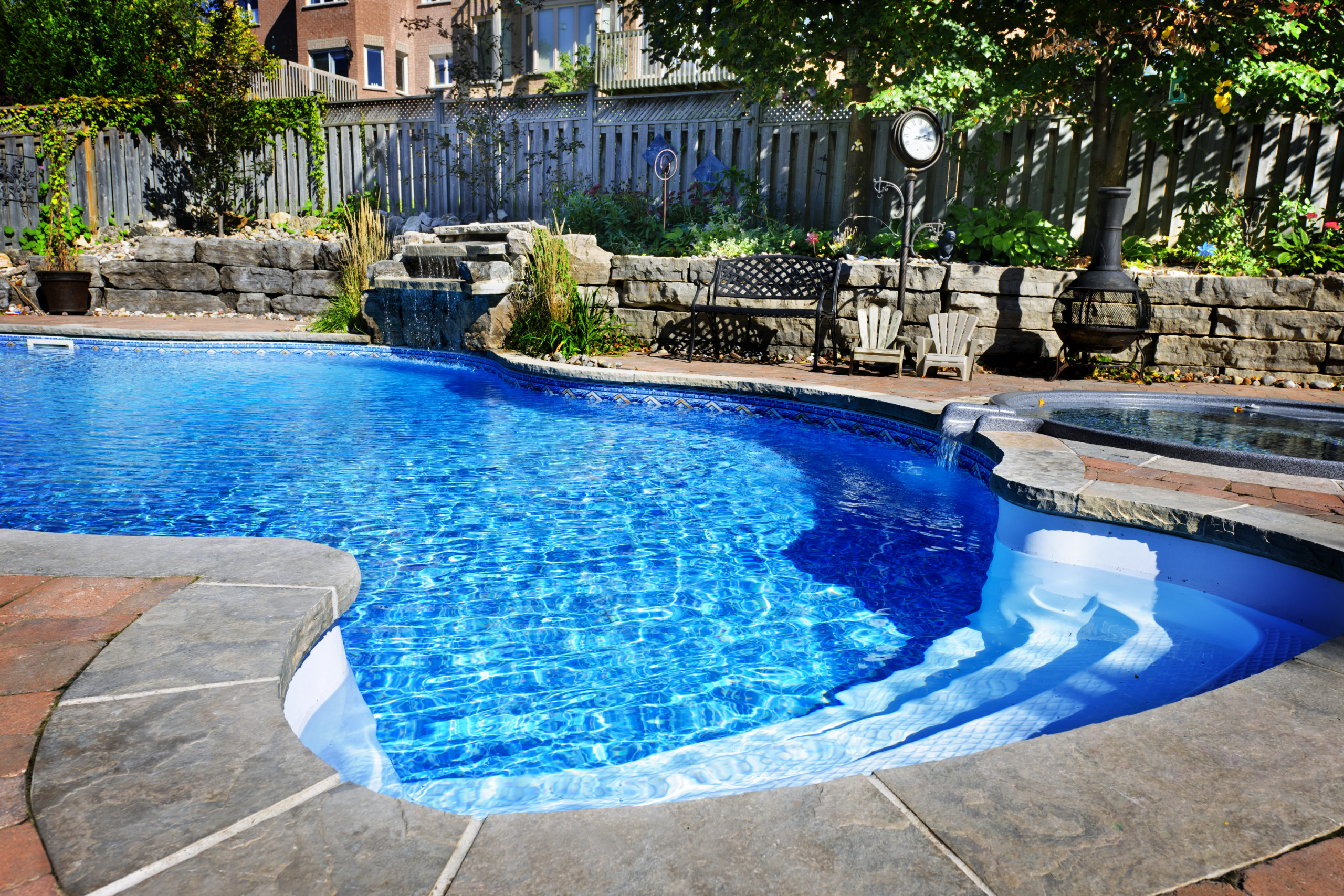You’re a proud pool owner, aren’t you?
It’s not just about fun and games. You’ve got responsibilities too!
Understanding the benefits of regular pool maintenance can significantly increase your pool’s lifespan, save you time and money, and ensure safety.
Let’s dive in to explore how sticking to a routine upkeep schedule can keep your oasis sparkling clean and in top-notch condition.
Understanding the Importance of Regular Pool Maintenance
You’ve got to understand, regular pool maintenance isn’t just about keeping the water clean-it’s crucial for the longevity of your pool. Emphasizing chemical balance importance is not only essential for safe swimming but also preserving the physical condition of your pool. A well-balanced pool has a pH level between 7.2 and 7.8, ensuring that your chlorine functions effectively.

Now, let’s talk algae prevention strategies-another key component in routine upkeep. Algae spores are always present, but without regular maintenance, these can bloom into a full-blown infestation that clouds your pool and clogs filters. You don’t want to swim in a green lagoon, do you? Of course not! To prevent this nightmare scenario, consistently monitor and adjust the chemical levels in your water.
Remember: mastery of these principles doesn’t occur overnight; it requires diligence and understanding. Regular skimming and vacuuming won’t be enough if you overlook chemical balance or algae prevention measures-that’s like trying to drive with flat tires! So invest time mastering these elements; they’re integral for maintaining an inviting-and lasting-pool oasis.
Essential Steps in a Routine Pool Maintenance Schedule
Understanding the essential steps in keeping your swimming area clean and functional is crucial to its longevity. With a regular pool maintenance schedule, you’re not just preserving its aesthetic appeal but also preventing potential damage that could lead to costly repairs.
Here are the key steps you need to include in your routine:
1. Chemical Balance: Regularly check and adjust the chemical levels in your pool. This includes pH, chlorine, alkalinity, and calcium hardness levels. A well-balanced pool ensures a safe swimming environment and prevents algae growth or metal corrosion.
2. Filter Cleaning: Your filter plays an integral role in maintaining water clarity by trapping debris. Clean it regularly to ensure optimal performance.
3. Skimming & Brushing: Skim leaves or other debris off the surface daily. Brush the sides of the pool weekly to prevent algae buildup.
4. Shock Treatment: Occasionally “shocking” your pool helps combat bacteria and keeps water clear.
These steps might seem daunting initially but sticking to this schedule pays off quite literally by extending your pool’s lifespan while ensuring pristine swimming conditions all year round.
Remember: A little effort now saves considerable work (and money) later!
The Impact of Regular Maintenance on Pool Lifespan
It’s important to realize that consistent upkeep can significantly extend the lifespan of your swimming area. A well-maintained pool maximizes the durability of your pool materials, ensuring they withstand exposure to water chemicals and weather elements over a longer period.
You’ve got to consider various lifespan extension techniques when formulating your maintenance strategy. Regular cleaning is essential, but don’t overlook areas like filtration systems and water chemistry balance – these play critical roles in preserving your pool’s integrity.
Taking care of your pool’s surface material also boosts its longevity. For instance, if you have a concrete or fiberglass pool, address minor cracks promptly before they escalate into severe structural issues. Similarly, for vinyl-lined pools, patch up any tears as soon as possible to prevent leaks.
Furthermore, maintaining an optimal chemical balance not only keeps the water safe for swimmers but also protects your pool materials from damage due to overly acidic or alkaline conditions.
Cost and Time Savings From Consistent Pool Upkeep
There’s a significant amount of money and time to be saved from keeping your swimming area in good condition consistently. Regular pool maintenance leads to efficiency improvements that ultimately reduce the chances of unexpected repairs.
Here are four specific ways you can save:
1. Preventing Damage: When you’re diligent about pool upkeep, minor issues don’t escalate into major problems. You’ll avoid the hefty costs associated with major repairs.
2. Optimized Energy Usage: Efficiency improvements like optimizing pump operation or updating equipment can significantly reduce energy consumption, slashing your utility bills.
3. Extended Equipment Lifespan: Well-maintained equipment lasts longer, delaying expensive replacements.
4. Reduced Cleaning Time: A clean pool requires less effort and fewer resources to maintain. It’s easier to keep a clean pool clean than it is to rehabilitate a neglected one.
You’re not just saving money; you’re also conserving valuable time that could be better spent enjoying your pool rather than fixing it.
In short, consistent care pays off by pre-empting unexpected repairs and promoting efficiency improvements in your swimming area’s operation. With these savings, maintaining your pool becomes an investment that yields substantial returns over time.
Health and Safety Advantages of Regular Pool Maintenance
You’re not only saving cash and time with routine upkeep, but also safeguarding the health and well-being of all who use your swimming area. Regular pool maintenance is a vital aspect of disease prevention. Without it, harmful bacteria could flourish, making your swim zone a breeding ground for infections.
Staying on top of things means regularly checking and adjusting the chemical balance in your pool water. This isn’t just about keeping the water clear; it’s about maintaining a safe swimming environment. An incorrect chemical balance can cause skin irritations or even more serious health complications.
But you’re smarter than that. You know that by testing the water regularly, you’ll be able to adjust pH levels swiftly, ensuring they stay within the recommended range – typically between 7.2 and 7.8 for most pools.
In addition to monitoring chemical levels, thorough cleaning is essential in preventing diseases caused by algae growth or leftover debris. Sure, it takes some effort, but remember what’s at stake here: everyone’s safety is paramount!

Frequently Asked Questions
What Are Some Common Problems That Can Occur if I Don’t Follow a Regular Pool Maintenance Schedule?
If you don’t maintain your pool regularly, you’ll face algae infestation consequences like murky water. Moreover, neglecting maintenance can reduce your pool’s lifespan due to wear and tear from unbalanced chemicals.
Are There Any Specific Tools or Equipment Needed for Routine Pool Maintenance?
Yes, there are specific tools needed for pool maintenance. You’ll require essential supplies like a skimmer, brush, vacuum and testing kits. Mastering pool cleaning techniques involves regular use of these tools.
Can I Undertake Pool Maintenance Tasks Myself or Should I Hire a Professional?
You can undertake pool maintenance yourself, but be aware of DIY disadvantages like lack of expertise and time. Hiring a professional offers advantages such as efficiency, precision and deep knowledge about pool systems.
How Often Should I Adjust the Chemicals in My Pool Water?
You should adjust your pool’s chemicals weekly. Understanding the importance of chemical balancing and mastering pool sanitization techniques ensures a healthy, clean swimming environment. It’s crucial for maintaining water clarity and preventing algae growth.
Does the Climate or Weather Have Any Effect on How Often I Should Maintain My Pool?
Absolutely, weather impacts your pool maintenance. Seasonal changes require adjustments for the best weather resilience. Hotter climates can increase algae and bacteria growth, requiring more frequent checks and chemical balancing to keep your pool sparkling.
